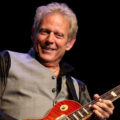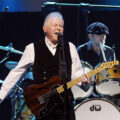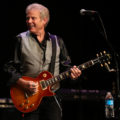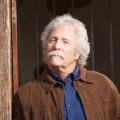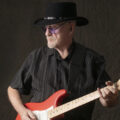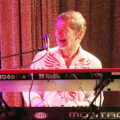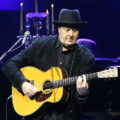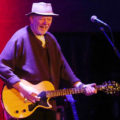North Shore in for “One Of These Nights” from former Eagle/“Hotel California” co-writer Don Felder
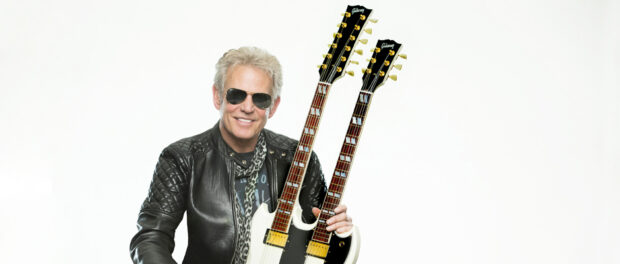 Photos provided by Red Light Management
Photos provided by Red Light Management
As a member of the Eagles from 1974 to 2001, Don Felder played a pivotal role as lead guitarist, songwriter and occasional singer throughout such iconic albums and tours as “On The Border,” “One Of These Nights,” “Hotel California,” “The Long Run” and “Hell Freezes Over,” plus can count his credits on “Their Greatest Hits” as being part of the best-selling album ever at 38 million copies and counting.
Individually speaking, he’s thus far released a trio of projects, including the relatively recent “American Rock ‘N’ Roll,” which overflows with famous friends from Slash to Sammy Hagar, in addition to numerous sessions (Crosby & Nash, Bee Gees, Stevie Nicks) and movie soundtracks (“Heavy Metal,” “Fast Times At Ridgemont High”).
The North Shore Center For The Performing Arts in Skokie will get an intimate opportunity to hear them all when the Rock and Roll Hall of Famer performs on Thursday, July 11, which as the legendary axe-slinger tells Chicago Concert Reviews, will be backed by an all-star band and feature plenty from arguably the most enormous American band to ever walk the earth.
You have so much material to pull from between the Eagles and on your own, how do you go about shaping a set list for a show?
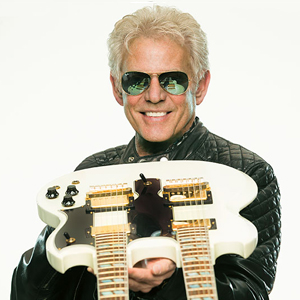 Don Felder: Well, I know a lot of people identify me with the Eagles, so a large part of my show are Eagles classics that I either co-wrote, recorded or toured with the band for 27 years. I think a lot of people expect and enjoy that, but I have an incredible catalogue of stuff to pull from. I also throw in “Heavy Metal,” which a lot of people have written in on my website about how they’d love to hear that song live. I do a little salute to Stevie Ray Vaughan with a song called “Pride And Joy” that just gives me the chance to play blues. It’s the way I would play that song in his honor, not note for note the way Stevie Ray does that. I do it as me. I do some other solo stuff. I do “American Rock ’N’ Roll” in the set, so they get a little taste of everything.
Don Felder: Well, I know a lot of people identify me with the Eagles, so a large part of my show are Eagles classics that I either co-wrote, recorded or toured with the band for 27 years. I think a lot of people expect and enjoy that, but I have an incredible catalogue of stuff to pull from. I also throw in “Heavy Metal,” which a lot of people have written in on my website about how they’d love to hear that song live. I do a little salute to Stevie Ray Vaughan with a song called “Pride And Joy” that just gives me the chance to play blues. It’s the way I would play that song in his honor, not note for note the way Stevie Ray does that. I do it as me. I do some other solo stuff. I do “American Rock ’N’ Roll” in the set, so they get a little taste of everything.
I have an amazing band with me, as a matter of fact. I cannot go on stage and play Eagles classics that everybody has heard, known and loved for the last 50 years, or close to it, and not come out with the strongest group of musicians and singers that I can assemble. I have players that have been the lead singer in the band Chicago. Some of them played with Rascal Flatts, Keith Urban and Carrie Underwood. One of my keyboard players has played with Mariah Carey, Adam Lambert and Kid Rock. These guys are not your normal back-up musicians. These are like the crème de la crème of musicians. I have guys that played with Peter Frampton and still play, back and forth, between Peter’s touring and mine. Billy Joel, Katy Perry, Dave Matthews Band, just on and on. When you see my introduction of these guys in my show you go, “Wow!”
They breathe fresh energy and dynamics in the vocals and the band just sounds great. I’m so proud to be able to present my show with these musicians and it just makes the evening amazing. At the end of the night, when we get down to playing like “The Long Run,” “Take It Easy,” “Life In The Fast Lane,” “Heartache Tonight” and “Hotel California,” everybody in the place is up on their feet. They’ve got their iPhones out, they’re dancing, and rocking, and up at the front of the stage, and we’re just having a great party, a great time. If you go on Ticketmaster and you look at the 400 and something comments about my show, you’ll see exactly what I’m talking about. People walk out going, “That was amazing!” I’m telling you these guys are just the best musicians and singers. Not only that, but they’re just a lot of fun on stage and off stage. There’s no drama. There’s no ego. There’s no in-fighting. There’s none of that. We’re just having a great time playing great music and having fun doing it. It comes out that way on stage too.
Can you recall any concerts around Illinois at any point?
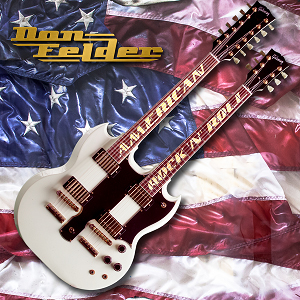 Felder: I’ve played in that area, on and off, as a solo artist, and before that, with the Eagles and with Crosby & Nash. I’ve been through there numerous times with different bands, but I have to say this is my favorite band and my favorite show. You’re really gonna enjoy these guys.
Felder: I’ve played in that area, on and off, as a solo artist, and before that, with the Eagles and with Crosby & Nash. I’ve been through there numerous times with different bands, but I have to say this is my favorite band and my favorite show. You’re really gonna enjoy these guys.
Your latest solo album is “American Rock ‘N’ Roll.” How would you describe Don Felder’s sound these days?
Felder: I’m working on a new album [right now]…It’s one thing to go out and play songs that everybody knows live and they immediately react to it, but when I walk into a studio, I have to create out of thin air just an idea. Start with a chord progression or start with a lyric and try to build a song, or an arrangement, or a track that has some sort of familiarity, either the way I play, the sound of my guitars, the lyrics and the types of songs that I write.
Like “American Rock ‘N’ Roll,” there’s an abundance of variety in that album and some of it, even “Little Latin Lover,” which has a flamenco-style guitar part, really doesn’t fit with some of the other tracks, but I don’t try to put together a project that is just one vein, if you know what I mean. Whatever I’m feeling at the time, I kind of just let it flow out and the stuff that turns out to be really great winds up on the record cause I won’t put out anything I don’t think is really good. The other stuff goes to digital heaven (laughs). I would say I’ll make 15 or 18 song ideas, and out of that, I might get nine or ten ones that I feel are the strongest. I’ll finish those and complete those for a record, so I have a variety of styles and a variety of sounds, but I think I’m still pretty identifiable when people hear me play guitar.
What role do you feel like you had in moving the Eagles from country leanings to more of a rock direction when you joined as a “late arrival” during the sessions for “On The Border,” and perhaps even more so, throughout “One Of These Nights”?
Felder: I think that’s why I was brought in to begin with. The Eagles were really kind of the beginning and basis of what now is called “country rock,” and in my opinion, I think country rock is actually just more rock than it is country. Even though a lot of the singers sing with a country accent, the tracks and the music are basically rock and roll. At the time when I was asked to join the band, the Eagles had hits like “Desperado,” “Peaceful Easy Feeling,” “Tequila Sunrise,” “Take It Easy,” very country-based hits, but AM radio wasn’t playing a lot of country music. People that were really country artists were being played on country radio.
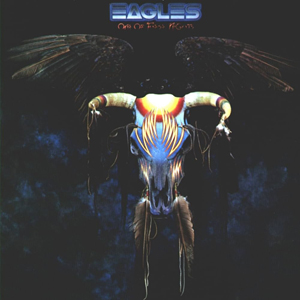 Glenn [Frey], being from Detroit, wanted to move the band more into an R&B and rock direction, and Bernie [Leadon], my friend from high school, really wanted to keep the roots in the country idiom. When I was brought in to play on “Good Day In Hell,” that was a rock track and that’s why they called me to come play slide. The next day, Glenn called me up and asked me to join the band, so I got the distinct idea and impression that they were really kind of shifting directions musically into more R&B-like songs, like “One Of These Nights,” “Already Gone,” things like that were more rock and R&B than country.
Glenn [Frey], being from Detroit, wanted to move the band more into an R&B and rock direction, and Bernie [Leadon], my friend from high school, really wanted to keep the roots in the country idiom. When I was brought in to play on “Good Day In Hell,” that was a rock track and that’s why they called me to come play slide. The next day, Glenn called me up and asked me to join the band, so I got the distinct idea and impression that they were really kind of shifting directions musically into more R&B-like songs, like “One Of These Nights,” “Already Gone,” things like that were more rock and R&B than country.
I had to learn to play pedal steel, mandolin and five string banjo when Bernie left to cover some of the live stuff, like “The Best Of My Love” and “Midnight Flyer.” I used to play mandolin on “Tequila Sunrise,” stuff like that, so I had to set aside my rock idiom and pick up country, and learn to play these country songs as part of the live show. I played pedal steel on “Girl From Yesterday” and a couple of other things that we did in the studio. They still wanted to keep a little bit of that flavor, but the radio was playing rock and R&B, so they kind of steered themselves in that direction. I brought more rock and roll into the band, and then when Joe [Walsh] joined the band, [he brought even more].
Joe and I had already played together with Joe Walsh & Friends on maybe a half-dozen live shows and a couple of television shows. We were just jamming together and having fun. I started writing stuff that Joe and I could do together guitar-wise for “Hotel California.” That track was written so Joe and I could play off of each other like we’d been doing live in Joe’s band, and for “Those Shoes,” I wrote that so we could do dueling talk boxes. It was a deliberate move to write [those kind of] songs. I think I wrote 15 or 16 songs for the “Hotel California” record. One became “Hotel California” and one became “Victim Of Love.” Both of those songs are unique, not country at all, and “Victim Of Love” was a lot more rock and it’s just heavier. It was fun to play, so I just kept writing stuff that I felt was appropriate for the band to play in the rock idiom.
How did the entire “Hotel California” season take you guys to the next level?
Felder: Honestly, I think a lot what happened as these albums were done was the songwriting power, the combination of [Don] Henley and Frey really started merging into an amazing talent, between Henley’s English literature lyrics and Glenn’s ability to conceive concepts, like “Life In The Fast Lane.” With a Joe Walsh lick and us playing the track, it kind of all came together. Everybody could sing, everybody wrote, everybody could play really well, and together, we made a very unique sound. That combination of all those talents really just seemed to blossom during “Hotel California” and we were doing things that none of us ever really expected to do, although we had wanted to do things, like a track that Joe and I could play guitar on against each other. Little did I ever think that song would go on to be what it is today. I get emails and texts from all over the world of people on vacation in Spain and India. They’re sitting in a bar and somebody’s playing “Hotel California” on a bouzouki or whatever. And it just never ceases to amaze me what a world impact it has gone on to have…
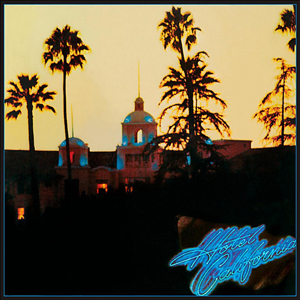 I think it was really my conception, musically. The lyrics that Don came up with were just brilliant. He’s a brilliant lyricist, but the music bed for it all, the chord progression, the bass part and all of that stuff that I wrote on the original demo wound up on the [recording]. I would say at least 50 percent, if not more of the guitar solo on the ends [did too]. I had tried to simulate me playing and then what Joe might play, and do a little mock up of what that ending was going to be. It was funny because we were in the studio in Miami recording, and Joe and I had set up two guitar amps out in the main studio. We were sitting in the control room and we were just playing that track, taking turns jamming on each other, and Henley comes walking in and says, “What are you doing?” And I said, “Well, we’re recording the guitar parts for the end of the record.” And he said, “no, no, no. You have to do it just like the demo.” And I said, “I don’t even remember what that is! I wrote that demo a year ago!” He said, “Well, you gotta get the demo. You’ve gotta record it just like the demo.”
I think it was really my conception, musically. The lyrics that Don came up with were just brilliant. He’s a brilliant lyricist, but the music bed for it all, the chord progression, the bass part and all of that stuff that I wrote on the original demo wound up on the [recording]. I would say at least 50 percent, if not more of the guitar solo on the ends [did too]. I had tried to simulate me playing and then what Joe might play, and do a little mock up of what that ending was going to be. It was funny because we were in the studio in Miami recording, and Joe and I had set up two guitar amps out in the main studio. We were sitting in the control room and we were just playing that track, taking turns jamming on each other, and Henley comes walking in and says, “What are you doing?” And I said, “Well, we’re recording the guitar parts for the end of the record.” And he said, “no, no, no. You have to do it just like the demo.” And I said, “I don’t even remember what that is! I wrote that demo a year ago!” He said, “Well, you gotta get the demo. You’ve gotta record it just like the demo.”
So I had to call my housekeeper back in Malibu, tell her there was a pile of cassettes in my studio, [had her] go through them, find the one, put it in a [stereo] blaster, hold the phone up to the blaster and play it. We recorded it on a reel-to-reel tape recorder in the studio in Miami so I could sit down and learn the part I just made up off the cuff that was just a demo that now was gonna be in the record (laughs) cause Henley had been listening to that solo over and over. That’s what he expected to hear when we made the record. So it was just a unique combination of talents between Joe and I [dueling on guitars], Don and Glenn lyric-wise, and Bill Szymczyk producing. It was just a very unique combination and very special when all of that came together for that song.
After releasing all the other albums a year apart, why did “The Long Run” take so long and how do you feel about it being the coda of that period?
Felder: I just think what happened was Bernie Leadon, when he left the band, he said, “We just need to take a couple of months off. Everybody go to Hawaii or go some place. Relax, get some sun, stop drinking and abusing yourself, and get healthy again. Then let’s get back together in a couple months and go back to pushing it.” Don and Glenn were like, “no, no, no, no. We’ve got this momentum. We’ve got to keep going right now. We can’t stop.” And so that’s when Bernie left. He just quit. He wasn’t going to sacrifice his health for the business, so I think after “Hotel California” came out, we did a lot of touring. Typically, I was writing little demo ideas the whole time in my hotel room and playing into a little cassette recorder, just trying to make little ideas that we could start working on, but nobody else was.
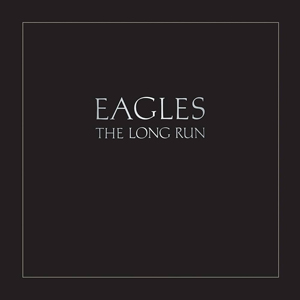 When we got into the studio, “Hotel California” was such an enormous success, it’s like we set the bar so high, we didn’t think we would ever be able to surpass that again, so there was an immense amount of pressure on everybody, on lyrics, on tracking, on everything. Nothing was as good as “Hotel California,” so there were considerable rejects that didn’t make it on to the record, but started out as an idea that just didn’t get completed. We finally got down to almost the very end of making “The Long Run” and Glenn Frey was not singing any hit. He was singing a song called “Teenage Jail” and that was far from a hit.
When we got into the studio, “Hotel California” was such an enormous success, it’s like we set the bar so high, we didn’t think we would ever be able to surpass that again, so there was an immense amount of pressure on everybody, on lyrics, on tracking, on everything. Nothing was as good as “Hotel California,” so there were considerable rejects that didn’t make it on to the record, but started out as an idea that just didn’t get completed. We finally got down to almost the very end of making “The Long Run” and Glenn Frey was not singing any hit. He was singing a song called “Teenage Jail” and that was far from a hit.
He got really upset and left, flew back to L.A., and I think Don or [manager] Irving [Azoff] called Bob Seger and said, “We need to write a song for Glenn to sing.” And Seger said, “I’ve got this song called ‘Heartache Tonight,’ but it’s not finished,” so he flew out to L.A., and Glenn, Don and Bob Seger, I don’t know if [co-songwriter] J.D. Souther was there or not, sat down and finished writing that song. We went back into the studio, recorded that track, Glenn sang it and it was probably one of the biggest hits on that record.
So it was a time where we had just ground ourselves down to nerve endings and all we wanted to do was get out of the studio, put out a record and go tour, and that’s what we did. We never really took that break that Bernie thought was a wise idea. Take The Rolling Stones. They’re smart enough to go, “Okay we’re gonna tour for a year-and-a-half, two years, then let’s take a couple of years off, relax, enjoy life, maybe come up with a couple of song ideas. They don’t just go non-stop and the Eagles’ philosophy was just, “let’s work, work, work, work, work, work, work, work.” I think that worked until we created this monster and it ate us (laughs), so I think that’s what happened with “The Long Run,” why it took so long. We were all touring. We couldn’t come up with great songs. To me, “The Long Run” album is maybe one of the weakest records that the Eagles made.
What are your thoughts on the “Hell Freezes Over” reunion?
Felder: It was wonderful that we could actually be in the same room and not argue or get upset. We were able to play music and have fun doing it. The thing that amazed me was when we decided to do an acoustic version of “Hotel California.” I had spent a great deal of time in the Holiday Inn at Harvard Square playing nylon string guitar when I was living in Boston while people were eating their dinner, so I had pretty good chops on nylon string guitar. The flavor of “Hotel California” is very Spanish, so I started playing around with the idea of doing it on nylon string guitar. I came up with an arrangement and we worked it out.
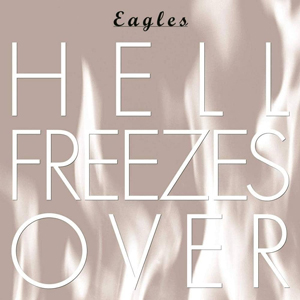 Then we’re on the sound stage of, I think it was Warner Brothers studios, and we have an orchestra set up. We have live recording for all the audio and I think ten cameras for video. When we went through soundcheck, we get to “Hotel California” and Henley says, “Don, we need a special introduction for this song.” And I’m like, “What are you gonna say?” I thought he was going to introduce the song, tell a story. “No, no, no. You need to come up with something.” So I’m sitting on the stage, this is at the end of soundcheck, and I say, “Okay, you guys play this chord and I’ll noodle around. Then you play this chord, I’ll noodle around. Play this chord and I’ll noodle around, then we’ll start the drum track, and we’ll start the song.”
Then we’re on the sound stage of, I think it was Warner Brothers studios, and we have an orchestra set up. We have live recording for all the audio and I think ten cameras for video. When we went through soundcheck, we get to “Hotel California” and Henley says, “Don, we need a special introduction for this song.” And I’m like, “What are you gonna say?” I thought he was going to introduce the song, tell a story. “No, no, no. You need to come up with something.” So I’m sitting on the stage, this is at the end of soundcheck, and I say, “Okay, you guys play this chord and I’ll noodle around. Then you play this chord, I’ll noodle around. Play this chord and I’ll noodle around, then we’ll start the drum track, and we’ll start the song.”
When we shot that show and recorded it, we recorded it twice, two different seatings in the house, so we had two different audios and videos to edit between. I had to walk out both times and just ad lib that introduction of the acoustic version of “Hotel California” and I was shocked at how well that acoustic arrangement I did was so well received after all the years of listening to it on electric guitar. Here it is on this really acoustic, naked version and I think its the only record, according to the RIAA [Recording Industry Association of America], that’s been recorded by the same band twice and been nominated both times for Grammys, and that says a lot about the songwriting of that song. People love that song so much, the music, the lyrics, it just doesn’t matter if it’s an acoustic version or an electric version. They just love that song.
When you parted ways with the band, “Heaven And Hell” was quite a revealing biography. How did it feel to get that off your chest and out to the world?
Felder: It never really came to me that that was ever going to be a book. I had a lot to swallow because I had gone through that separation from my band, my career, my identity, my success, my income, and the same year, had gone through a divorce from my wife of 29 years, so everything I had had been stripped away. Why? I don’t know, but it happened, so I used to get up every morning and I would mediate for about 15-20 minutes. Five o’clock, 5:30 in the morning, it was really still, really quiet. The first glimpse of sunlight was starting to come in and I would meditate on certain parts of my life, going back to me growing up destitute, in poverty on a little dirt road in a white clapboard house with a tin roof outside Gainesville, Florida. How I got from there all the way up to making records in New York, and then moving to Boston, and then moving to California, and winding up in one of the biggest, historic bands in rock and roll, cause I needed to understand what had happened to me and how I got to where I was.
When I’d come out of these mediations, I’d have legal pads to write these memories down and I started filling up these legal pads on my desk, just for a cathartic kind of insight into myself. My fiancé, at the time, came in and started reading those, unbeknownst to me, and said, “This would make an incredible book.” I went, “I don’t know how to write a book. I failed ninth grade English and had to spend a summer in summer school to make it up. I can’t write a book!” She said, “We can have an editor help you and maybe find somebody who can do all the research, put dates correctly. You could write a book. All the stories are right here!”
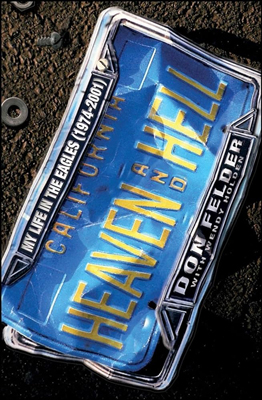 So I got on a plane, flew back to New York with a literary agent and we went to five different publishing companies. By the time I got back to L.A., we had five offers to publish that book, so I went, “Well, I guess I’m gonna publish a book” (laughs). I was very careful as to not be ugly about the stuff that I was writing about anybody in the band. I tried to do my best, to be honest, open, sincere and truthful about what it was like, and not really try to just blame everybody else but myself because whatever happened, it happened to us all and for a reason. So anyway, that’s kind of what happened, why that came about. It was not meant to be a book, but it turned into a book.
So I got on a plane, flew back to New York with a literary agent and we went to five different publishing companies. By the time I got back to L.A., we had five offers to publish that book, so I went, “Well, I guess I’m gonna publish a book” (laughs). I was very careful as to not be ugly about the stuff that I was writing about anybody in the band. I tried to do my best, to be honest, open, sincere and truthful about what it was like, and not really try to just blame everybody else but myself because whatever happened, it happened to us all and for a reason. So anyway, that’s kind of what happened, why that came about. It was not meant to be a book, but it turned into a book.
You’ve done a lot of living from the point it was published until now. What would you like readers to know since that story ended?
Felder: I started to recount a bunch of ideas of what’s happened to me because I think I finished that in 2001 or something and published that in 2008. It’s been 20-something years since that book was done, so I have a lot of living, a lot of growth and a lot of rebuilding of my life. It’s a wonderful thing to have gone through something that you’ve just been given, this huge blessing, and then [when] it all stripped away, realizing, really, what you have is yourself, and your talents, and your energy, and your own two hands, and rebuild your life. So there’s a great storyline in that, from when that first book was published, that I may publish another book.
Outside of the Eagles, who are other notable musical partnerships you’d like to highlight?
Felder: You know, I really enjoyed this last record, “American Rock ‘N’ Roll,” because my other albums, “Airborne” and “Road To Forever,” I literally played every guitar: pedal steel, acoustic, electric, banjo, mandolin, slide guitar, everything you could think of. I played it all. I miss having somebody come in, like Joe and I would do, and just create something together, trade solos off of each other instead of me simulating everything. When I did “American Rock ‘N’ Roll,” [I thought] it would be fun to do it, so I called Slash and he came in. He lives down the street from me and he actually played on the track “American Rock ‘N’ Roll.” I had a blast playing with him. We’ve done a couple of other charity events along the way just cause it’s fun.
I was up in Sammy Hagar’s studio. He sang on one of the tracks called “Rock You.” We’re sitting in the guitar room, and I see Joe Satriani come walking down the hall, and I go, “Joe, you gotta get a guitar and come play on this record.” So he and I sit in a studio with a couple of guitars, just like Joe and I did, and in a matter of 30 minutes, we made these solos, figured out harmony parts and put it together. It was just really fun and exciting to do that.
I had Alex Lifeson from Rush play on a track from me. Frampton played on a track with me, so I started reaching out to other people that I knew and they were all kind enough to come play something with me. If you look at the credits on “American Rock ‘N’ Roll,” there’s a lot of people that came and worked on that record, from Mick Fleetwood to Steve Gadd for drums, tons of different drummers, bass players, keyboard players, guitar players. It was just fun to have my friends come and play on stuff for me. I really enjoyed it!
Don Felder performs at the North Shore Center For Performing Arts on Thursday, July 11. For additional details, visit DonFelder.com and NorthShoreCenter.org.

